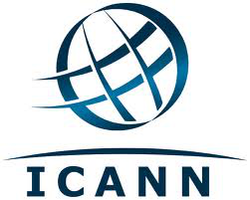Sept. 27, 2019
Thesaurus : Soft Law
Full reference: Information Note From the European Commission to the Permanent Representatives Committee About the Progress on Combatting Hate Speech Online Through the EU Code of Conduct, Council of the European Union, 27th of September 2019, 7p.
June 25, 2019
Breaking news

Le 24 juin 2019, le Régulateur irlandais a publié un rapport visant à participer à la consultation publique lancée par le ministère de la Communication, portant à la fois sur la façon dont il convient de transposer la directive européenne sur les services audiovisuels et sur la perspective d'une loi nationale sur la "régulation des contenus dommageables sur les plateformes en ligne".
Pour le Régulateur, le rapprochement des deux actes législateurs offre une opportunité d'une régulation globale des "médias en ligne", offrant à l'internaute une "sécurité" que la simple transposition de la Directive ne permet pas. Ainsi la seconde loi complétera la première.
Pour le Régulateur, la loi nationale à adopter doit permettre au Régulateur de donner une pleine sécurité à l'internaute irlandais ("online safety"), en retirant les contenants violents ou dommageables (le terme harmful est difficile à traduire par un seul mot en français) et en l'avertissant à propos de ceux-ci.
Comme l'explicite le rapport (p.52) :
The BAI considers that the following four strategic objectives and responsibilities are relevant for an online safety regulator operating within the new media regulatory structure: • Rectifying serious harms occurring to Irish residents through their use of online services. • Ensuring that individuals and members of groups that are frequently subject to harmful online content can fully benefit from digital technology and social media. • Reducing online harms by introducing online safety rules for online platforms. • Promoting responsibility and awareness of online safety issues among the general population and industry. To fulfil these objectives and responsibilities, the BAI considers that the Online Safety Regulator could have the following three functions:
1. Operating a statutory mechanism to remove harmful online content that directly affects Irish residents (Rectification of Harm)
2. Developing and enforcing an online safety code for Irish-resident online platforms (Minimisation of the potential for Harm)
3. Promoting awareness of online safety issues among the public and industry (Preventing Harm). Ensuring that online services play a more effective role in tackling online safety issues can provide wide, “collective” benefits to large numbers of individuals simultaneously.
Visant expressément Youtube et Facebook, qui en Europe ont choisi de se localiser en Irland, le Régulateur demande une Régulation des plateformes de partage de vidéos qui doit, à travers un Code s'appliquant à eux, permettre de régir leur activité qui se déploie à travers toute l'Europe. Ce Code aurait vocation à rappeler en premier le principe de la libre expression. Tout en organiser la "sécurité en ligne" de l'internaute.
Le Régulateur irlandais des Médias sera en charge de cela. Et puisque les opérateurs sont localisés en Irlande, ses conceptions et ses actions auront donc un effet européen : comme le dit le Président de l'Autorité de Régulation lui-même : " This is a particularly important issue for this country, given that many of the majoar international platforms are based her. Ireland has a unique opportunity - and responsability - to lead the debate and chart the way forward in relation to online safety and regulation".
____
"to lead" ?
Il n'est pas certain que les autres régulateurs nationaux ni la Commission européenne partagent une telle conception irlando-centriste de la régulation euroréenne des médias.
June 24, 2016
Breaking news

The Autorité des Marchés Financiers (AMF- French Prudential Supervision Authority) set up a Scientific Advisory Board under the supervision of its president Gérard Rameix, who is also president of the AMF.
The Scientific Advisory Board chose ‘Financial education in the digital era’ as the theme of its annual conference, which was held on 20 June 2016 in partnership with Paris School of Economics.
The conference was opened by François Villeroy de Galhau, Governor of the Banque de France (France’s central bank). He stated that financial literacy “shall help everyone make informed decisions”. In this regard, financial literacy is a “factor for economic efficiency and social fairness”, which justifies involvement from public authorities- including, namely, the Banque de France. In partnership with both the Autorité de Contrôle Prudentiel et de Résolution (ACPR- French Prudential Supervision Authority) and the AMF, the Banque de France ought to be a “caring educator, but an attentive regulator”, as it is “imperative that financial literacy and Regulation should be taken forward jointly, as to allow for new technologies to develop, which would be understood by all and for the benefit of all”.
Three roundtables followed. The first roundtable aimed at assessing financial literacy trends and their impact on the financial behaviour of consumers and investors in Europe. The second session focused on the opportunities opened up by new technologies (upon which Fintechs, e.g., crowdfunding platforms, data aggregators and automated financial advice services are thriving) as regards financial behaviours. Lastly, the third panel discussion, which involved several French (AMF, Institut National de la Consommation- INC, French National Institute for Consumer Affairs) and European (European Commission) Regulators, draw conclusions from the first two roundtables and discussed on the issues that an increasingly digitalised financial education raises for Regulatory authorities.
Since this conference raises many crucial questions for Regulation, it is important to recall what has been said in the panel discussion on the role of Regulator with regards to financial education (I.) before sharing some thoughts on this matter of particular interest (II.).
Dec. 2, 2014
Breaking news

Internet requires regulation. It does not works solely because of the moral sense of the users or through vigilance of companies that develop on it.
The regulator of the virtual space can be imagined, or a regulator of the various possible activities that develop there, regulators then deploying their powers as when the activity takes place on the Internet. Thus, it is the case of advertising.
In the UK, the Advertising Standard Authority (ASA) monitors the advertising business, also on the Internet.
Its decision of 26 November 2014 is remarkable for several reasons. It punishes two non-professionals, namely two users Youtube tool. But in communication, non-market entrepreneurs sometimes have more weight than businesses. But on the Internet, users can sponsor their free activity, which is to monetize. In this case, the two had played on their Youtube channel short films that were advertisements.
The complaint made against them is that Youtube is not a support on which those who put content make it to commercial purposes. And other users could not understand they watched the advertisement and not a distraction film or information.
The Regulator imposes a sanction against Internet users not because they did a promotional contract with the company, in this case Cadbury wich wants to promote Oreo cookies. By this contract, the entreprisee via the famous Internet users can reach consumers, which is permissible. They are punished because they have deceived the confidence of the other Internet users who can't imagine being the target of an advertisement. The fact that it is people with many fans on youtube counted in the severity of the Regulator. Indeed, they have more than 2 million subscribers. More than 1.3 million have seen the offending video. Only 243 people have not loved it.
Updated: Sept. 25, 2012 (Initial publication: Dec. 7, 2011)
Sectorial Analysis

Translated Summaries
In The Journal of Regulation the summaries’ translation are done by the Editors and not by the authors
ENGLISH
The Conseil d’Etat (French Council of State) handed down a ruling (n°339154) on October 19, 2011 in the French Data Network, Apple, and iTunes case. In this ruling, it refused to annul the decree giving the "Haute Autorité pour la diffusion des œuvres et la protection des droits sur Internet" (HADOPI — France’s Internet Piracy Regulator) the power to issue injunctions to force the accessibility of essential information on the Internet in order to guarantee interoperability, using either penalties or fines.
FRENCH
Le Conseil d’Etat a rendu un arrêt (n ° 339154) le 19 Octobre 2011 French Data Network, Apple et iTunes. Dans cet arrêt, il a refusé d’annuler le décret donnant à la Haute Autorité pour la diffusion des Œuvres et la protection des Droits sur Internet (HADOPI) le pouvoir d’émettre des injonctions pour forcer l’accessibilité des ’informations essentielles sur Internet afin de garantir l’interopérabilité, en utilisant des injonctions ou des amendes.
ITALIAN
Il “Conseil d’Etat” (il Consiglio di Stato francese) ha pronunciato una decisione (n° 339154) il 19 ottobre 2011 nel caso della rete di dati francese, Apple ed iTunes. In questa decisione, il Consiglio di stato ha rifiutato di annullare il decreto che conferisce alla “Haute Autorité pour la diffusion des œuvres et la protection des droits sur Internet” (HADOPI – l’autorità francese di regolazione contro la pirateria informatica) il potere di emettere delle sanzioni per assicurare l’accessibilità di informazioni essenziali su internet per garantire l’interoperabilità, usando così delle multe o delle ammende.
..................
Other translations forthcoming.
Updated: Sept. 25, 2012 (Initial publication: June 12, 2011)
Sectorial Analysis

ENGLISH
On May 12, 2011, both Neelie Kroes, the European Commissioner for the digital agenda within the European Commission, and Larry Strickling, Assistant Commissioner for Communications and Information within the United States Department of Commerce, sent a notification to the ICANN, a private association that manages Internet domain names. First of all, they agreed with the principle of self-regulation of Internet domain names by the ICANN. But, they requested a reform of its “governance” to improve its transparency and better take into account public authorities’ recommendations.
Association - Conflict resolution - Domain name - European commission - Internet - Internet Corporation for Assigned Names & Numbers (ICANN) - Memorandum - Power - Private regulator - Regulatory Authority - Self regulation - Soft law - Transparency - United Nations (UN) *
* In The Journal of Regulation, these keywords are done by the Editor and not by the Author.
PORTUGUESE
Informe bibliográfico (Internet): Autoridades europeias e norte-americanas notificaram a ICANN, uma associação privada encarregada da auto-regulação de nomes de domínio na Internet, que ela deve adotar uma governança mais transparente e também adotar as recomendações de estruturas públicas.
Em 12 de maio de 2011, tanto Neelie Kroes, o Comissário Europeu para a agenda digital dentro da Comissão Europeia, quanto Larry Strickling, Comissário Assistente para Comunicações e Informação dentro do Departamento de Comércio dos Estados Unidos da América, enviaram uma notificação para a ICANN, uma associação privada que gerencia nomes de domínio na internet. Em primeiro lugar, eles concordaram com o princípio da auto-regulação dos nomes de domínio na Internet pela ICANN. No entanto, eles solicitaram uma reforma em sua governança para melhorar sua transparência e melhor levar em consideração as recomendações de autoridades públicas.
Associação – Resolução de conflitos – Nome de domínio – Comissão Europeia – Internet - Internet Corporation for Assigned Names & Numbers (ICANN) – Memorandum – Poder – Regulação privada – Autoridade de regulação – Auto-regulação – Soft law – Transparência – Nações Unidas (ONU)*
* No Journal of Regulation, as palavras-chave são fornecidas pelo Diretor, e não pelo Autor.
ITALIAN
Relazione bibliografica (Internet): Le autorità europee e nord americane hanno indicato che l’ICANN, una società privata che ha lo scopo di auto-regolare i nomi a dominio di internet, dovrà aumentare la trasparenza della gestione ed adottare le raccomandazioni delle strutture pubbliche
Il 12 maggio 2011, Neelie Kroes, Commissario europeo per l’agenda digitale della Commissione europea, e Larry Strickling, Commissario assistente per le comunicazioni e l’informazione del Dipartimento del Commercio degli Stati Uniti, hanno entrambi dichiarato che l’ICANN, una società privata che gestisce i nomi a dominio di Internet, deve riformare il proprio sistema di gestione migliorando la sua trasparenza e deve prendere in debita considerazione le raccomandazioni provenienti dalle autorità pubbliche.
Associazione - Autorità di regolazione - Autorità privata di regolazione - Auto-regolazione - Commissione Europea - Internet - Internet Corporation for Assigned Names & Numbers (ICANN) - Memorandum - Nazioni Unite (ONU) - Nomi di dominio - Potere - Risoluzione di controversie - Soft law - Transparenza *
* In The Journal of Regulation, le parole chiave sono responsabilità dell’Editore e non dall’Autore.
Other translations fortcoming.
Updated: June 25, 2012 (Initial publication: June 20, 2012)
Breaking news

Updated: June 8, 2012 (Initial publication: June 3, 2012)
Breaking news

Updated: May 29, 2012 (Initial publication: May 17, 2012)
Breaking news

Updated: March 8, 2012 (Initial publication: Nov. 8, 2011)
Thesaurus : Doctrine
Updated: Jan. 3, 2012 (Initial publication: Jan. 2, 2012)
Contributions

Updated: Jan. 2, 2012 (Initial publication: Jan. 2, 2012)
Releases : Neutrality in Systems of Economic Regulation

Translated Summaries
In The Journal of Regulation the summaries’ translation are done by the Editors and not by the authors
ENGLISH
The debate on Net Neutrality faces a major difficulty, namely that of its legal status: does there exist a “legal principle”—meaning a rule somewhere within the entire body of law—with mandatory force that could be used to counter infrastructure operators’ discriminatory practices?
FRENCH
Le débat sur la neutralité du Net fait face à une difficulté majeure, à savoir son statut juridique: existe-t-il un «principe juridique», qui exprime une règle dans l’ensemble du système juridique - avec une force obligatoire qui pourrait être utilisée pour contrer les pratiques discriminatoires des opérateurs d’ infrastructure ?
SPANISH
El debate sobre la Neutralidad de la Red se enfrenta a una gran dificultad, primordialmente en cuanto a su estatus legal: ¿realmente existe un “principio legal” – es decir, una regla que se encuentra dentro de la disciplina del derecho – con fuerza mandataria que podría ser usado para enfrentar a las prácticas discriminatorios que practican los operadores de infraestructura?
ITALIAN
Il dibattito sulla neutralità della rete si trova di fronte ad una difficoltà rilevante dal punto di vista del suo fondamento giuridico: esiste una norma giuridica obbligatoria – intesa come una norma legale – che possa essere utilizzata contro le pratiche discriminatorie degli operatori?
....................
Other translations forthcoming.
Updated: Dec. 21, 2011 (Initial publication: Dec. 7, 2011)
Contributions

Updated: Dec. 13, 2011 (Initial publication: Nov. 24, 2011)
Contributions

Updated: Dec. 12, 2011 (Initial publication: Nov. 24, 2011)
Sectorial Analysis

Translated Summaries
In The Journal of Regulation the summaries’ translation are done by the Editors and not by the authors
ENGLISH
Several German representatives for regional data protection demanded that Facebook complies with EU and German law. Two major complaints concern Facebook’s facial recognition software and its "Like"-button.
FRENCH
Plusieurs représentants de l’Allemagne pour la protection des données régionales ont exigé que Facebook respecte les droits allemand et de l’Union Européenne. Les deux principaux reproches concernent le logiciel de reconnaissance faciale de Facebook et de son "Like" button.
SPANISH
Varios representantes alemanes de la protección de data regional demandaron que Facebook cumpla con la leyes europeas y alemanas. Dos quejas principales conciernen el software de reconocimiento facial de Facebook y su tecla “Like.”
ITALIAN
Diversi rappresentanti tedeschi per la protezione di dati regionali hanno richiesto a Facebook di conformarsi con la legislazione tedesca ed europea. I due reclami principali riguradano il sistema di riconocimento del viso di Facebook e la sua funzione “Mi piace”.
......................
Other translations forthcoming.
Dec. 6, 2011
Thesaurus : 03. French Council of State
2011, 19 oct., French Data Network, Apple Inc., ITunes Sarl.
Updated: Sept. 15, 2011 (Initial publication: June 12, 2011)
Contributions

Updated: Sept. 7, 2011 (Initial publication: Sept. 1, 2011)
Contributions

Updated: Aug. 31, 2011 (Initial publication: June 15, 2011)
Contributions

Updated: Aug. 30, 2011 (Initial publication: June 3, 2011)
Contributions

Updated: July 19, 2011 (Initial publication: July 1, 2011)
Bibliographic Reports : Books

Updated: June 28, 2011 (Initial publication: May 28, 2011)
Releases : I. Isolated Articles

ENGLISH
In the most developed nations, as in emerging countries, the economy and society are currently being entirely transformed by an industrial revolution originating in information and communication technologies.
Anti-competitive Behaviour Audacity - Autorité de Régulation des Communications Electroniques et des Postes (ARCEP - French Electronic Communications and Posts Regulator) - Communication - Competition - Confidence - Cooperation - Darwin - Digital revolution - Discrimination - European Commission - Ex ante / Ex post - Fiber optic - Future - impredictibility - Information - Infostructure - Infrastructure - Innovation - Internet - Lamarck - Napoleon - Network - Overregulation - Risk - Uncertainty - Underregulation *
* In The Journal of Regulation, these keywords are done by the Editor and not by the Author.
ITALIAN
Articolo: Innovazione e regolazione al servizio della rivoluzione digitale
Nelle nazioni le più sviluppate, nonché negli stati in via di sviluppo, l’economia e la società sono completamente trasformati da un rivoluzione industriale che trova le sue origini nelle teconologie d’informazione e di comunicazione.
Autorité de Régulation des Communications Electroniques et des Postes (ARCEP – Autorità francese di regolazione dei servizi postali e di telecomunicazione) – Commissione Europea - Comportamento anticoncorrenziale – Comunicazione – Concorrenza – Cooperazione – Darwin – Deregolamentazione - Discriminazione - Ex ante / Ex post – Fibra ottica – Imprevisibilità – Incertezza - Inflazione normativa - Informazione – Infostruttura – Infrastruttura – Innovazione – Internet – Lamarck – Napoleone – Rete – Rischio - Rivoluzione digitale *
* In The Journal of Regulation, le parole chiave sono responsabilità dell’Editore e non dall’Autore.
PORTUGUESE
Artigo: Inovação e Renovação a serviço da Revolução digital.
Nos países mais desenvolvidos, bem como nos em desenvolvimento, a economia e a sociedade vem sendo, atualmente, completamente transformados por uma revolução industrial baseada em tecnologias da informação e da comunicação.
Comportamento anti-concurrencial – Autoridade de regulação das comunicações eletrônicas e dos correios (ARCEP – Regulador francês de Comunicações e dos Correios) – Comunicação – Concorrência – Confiança – Cooperação – Darwin - Revolução digital – Discriminação – Comissão Europeia – Ex ante / Ex post – Fibra ótica – Futuro – Imprevisibilidade - Informação – Info-estrutura – Infra-estrutura – Inovação – Internet – Lamarck – Napoleão – Rede – Sobre-regulação – Risco – Incerteza – Sub-regulação.*
* No Journal of Regulation, as palavras-chave são fornecidas pelo Diretor, e não pelo Autor.
SPANISH
Artículo: Innovación y regulación sirviendo la revolución digital
En las naciones más desarrolladas, tal como en los países emergentes, la economía y la sociedad están actualmente siendo transformadas por una revolución industrial provenientes de las tecnologías informáticas y de telecomunicaciones.
Other translations forthcoming.
Updated: June 24, 2011 (Initial publication: June 15, 2011)
Releases : I. Isolated Articles

ENGLISH
The role of fibre is very important towards connecting to ultra-fast broadband, one of the key action areas of the Digital Agenda. But, Europe is late in its fibre deployment, especially when compared to other advanced economies such as the United States or Japan. At the same time, however, there is still no standard for a European fibre strategy: public as well as private stakeholders are having very different approaches in local FTTx deployment sometimes leading to a waste in private and public funds and being mainly focused on dense areas. This article aims to propose an efficient model for fibre network deployment that can be applied to all European Member States. The model provides high-margin incentives for operators to install fibre network across the whole country, while maximising households’ fibre connection rate through an automatic migration scheme. In a period of weak growth and budget restrictions, the catch-up in ultra-fast broadband internet requires more than ever an efficient policy to maximise the deployment of FTTH at the lowest cost possible to the public. The proposed model serves as an ideal choice given this context.
Alternative operator - Budget - Connexion - Copper network - Cost - Digital agenda - Duplication - Effeciency - Essential facility - Europe - Fiber optic - France - Incentive - Incumbent operator - Infrastructure - Internet - Natural economic monopoly - Network - Price - Provider - Regulatory policy *
* In The Journal of Regulation, these keywords are done by the Editor and not by the Author.
PORTUGUESE
Artigo: Do cobre à fibra: uma política de regulação ótima.
O papel da fibra é muito importante em conexões de banda larga de alta velocidade, uma das principais ações na área da Agenda Digital. No entanto, a Europa está atrasada no desenvolvimento da fibra, especialmente quando comparada com outras economias avançadas como Estados Unidos ou Japão. Ao mesmo tempo, porém, ainda não há um patamar para uma estratégia europeia para a fibra: detentores de haveres públicos e privados têm tido diferentes posturas no desenvolvimento de FTTx local, o que leva às vezes a um desperdício de fundos públicos e privados e sendo sobretudo registrado em áreas de densidade. Este artigo objetiva propor um modelo eficiente para o desenvolvimento da rede de fibra que possa ser aplicado para todos os Estados Membros Europeus. O modelo prevê incentivos altos para operadores para instalar redes de fibra por todo o país, enquanto maximiza a taxa de conexões domésticas de fibra através de um esquema de migração automática. Em um período de crescimento desacelerado e restrições orçamentárias, um novo impulso em banda larga de alta velocidade requer mais do que nunca uma política eficiente para maximizar o desenvolvimento de FTTH ao menor custo possível para o público. O modelo proposto serve como uma escolha ideal dado este contexto.
Operador alternativo – Orçamento – Conexão – Rede de cobre – Custo – Agenda digital – Duplicação – Eficiência – Facilidades essenciais – Europa – Fibra ótica – França – Incentivo – Operador – Infra-estrutura – Internet – Monopólio natural econômico – Rede – Preço – Provedor – Política de regulação*.
* No Journal of Regulation, as palavras-chave são fornecidas pelo Diretor, e não pelo Autor.
ITALIAN
Articolo: Dal rame alla fibra: un’ottima politica di regolazione
Il ruolo della fibra è molto importante per la connessione ad alta velocità, una delle azioni centrali dell’agenda digitale. Tuttavia l’Europa è in netto ritardo per quando riguarda lo sviluppo della fibra, in particolare rispetto all’economia di altri paesi come gli Stati Uniti o il Giappone. Questo si capisce, però, in quanto non esiste uno standard per la strategia dell’Europa in materia di fibra: gli attori privati e pubblici del settore della fibra stanno avendo degli approcci differenti nei confronti della realizzazione dei FTTx, e tali approcci spesso si concludono in uno spreco di investimenti e si concentrano spesso su aree ad alta densità. Questo articolo si propone di trovare un modello efficace per la realizzazione di una rete a fibra in tutti gli Stati membri. Questo modello prevede degli incentivi elevati per gli operatori che installano delle reti a fibra ottica nei loro paesi, e massimizza la percentuale di connessioni a fibra ottica per nucleo familiare con un sistema di migrazione automatico. In un periodo di crescita ridotta e restrizioni di budget, lo sviluppo di connessioni a fibra ottica richiede una politica quanto mai efficace per massimizzare lo sviluppo del FTTH ai minimi costi possibili per i conti pubblici. Il modello proposto costituisce una scelta essenziale, in considerazione del contesto esistente.
Agenda digitale - Budget - Connessione - Connessioni su rame - Costi - Duplicazione - Efficienza - Europa - Fibra ottica - Fornitore - Francia - Incentivi - Infrastruttura - Infrastruttura essenziale - Internet - Monopolio economico naturale - Operatore alternativo - Operatore storico - Prezzo - Politica di regolazione - Rete *
* In The Journal of Regulation, le parole chiave sono responsabilità dell’Editore e non dall’Autore.
SPANISH
Artículos: Del cobre a la fibra : una política regulatoria óptima
El rol de la fibra óptica es de gran importancia en lo que concierne la conexión al ancho de banda ultrarrápida, una de las áreas claves de acción en la Agenda Digital. Sin embargo, Europa se encuentra atrasada en cuanto a su desarrollo, especialmente en comparación con otras economías avanzadas, como la de los EEUU o Japón. No obstante, todavía no existe un estándar para una estrategia europea para la red de fibra óptica; accionistas, tanto privados como públicos, han estado adoptando diferentes acercamientos a la implementación de los FTTx, lo cual suele llevar a un enfoque sobre áreas demasiado densas y al desperdicio de fondos privados y públicos. Este artículo tiene como objetivo proponer un modelo eficiente para el desarrollo de la red de fibras ópticas que podría aplicarse a todos los miembros de la Unión Europea. El modelo provee incentivos de gran margen de ganancias para operadores para la instalación de estas redes de fibras a través del país entero y al mismo tiempo maximiza la conexión rápida de fibras en todas las viviendas facilitado por el uso de un esquema de migración automática. En un periodo de crecimiento débil y restricciones presupuestarias, el “catch-up” en el Internet de banda ancha ultrarrápida requiere ahora más que nunca una política eficaz para maximizar el desarrollo del FFTH y minimizar el coste incurrido por el público.
Other translations forthcoming.
